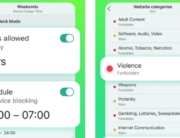The Indiana Catholic Conference (ICC) as well as other advocates when it comes to bad vow to help keep up their battle after two present votes within the Indiana Senate that in place would significantly expand predatory financing into the state.
An annual percentage rate (APR) of up to 391 percent on the short-term loans that they offer in a close vote, lawmakers defeated Senate Bill 104, which would have placed limits on the payday lending institutions that charge consumers. But a lot more troubling to opponents regarding the cash advance industry ended up being the passing of Senate Bill 613, which may introduce new loan items that are categorized as the group of unlawful loansharking under present Indiana legislation.
Both votes happened on Feb. 26, the last time before the midway point when you look at the legislative session, when bills go over from 1 chamber to some other. Senate Bill 613—passed underneath the slimmest of margins—now techniques into the Indiana House of Representatives.
“We want to do every thing we are able to to stop this from going forward,†said Erin Macey, senior policy analyst when it comes to Indiana Institute for performing Families. “This bill goes method beyond payday financing. It makes loan that is new and advances the costs of each kind of credit rating we provide in Indiana. It might have extreme effect perhaps not only on borrowers, but on our economy. No body saw this coming.â€
Macey, whom usually testifies before legislative committees about issues impacting Hoosier families, stated she as well as other advocates had been blindsided in what they considered a 11th-hour introduction of the vastly modified customer loan bill payday loans Wyoming by its sponsors. She stated the maneuver that is late likely in expectation regarding the upcoming vote on Senate Bill 104, which may have capped the attention rate and charges that the payday lender may charge to 36 % APR, in accordance with 15 other states together with District of Columbia. Had it become legislation, the balance probably could have driven the lending that is payday out from the state.
The ICC had supported Senate Bill 104 and opposed Senate Bill 613. Among other conditions, the revised Senate Bill 613 would change Indiana legislation governing loan providers allowing interest charges as much as 36 per cent on all loans without any limit regarding the quantity of the mortgage. In addition, it could enable payday loan providers to supply installment loans up to $1,500 with interest and costs as much as 190 per cent, along with a product that is new 99 per cent interest for loans as much as $4,000.
The public policy voice of the Catholic Church in Indiana“As a result of these two votes, not only has the payday lending industry been bolstered, but now there is the potential to make circumstances even worse for the most vulnerable people in Indiana,†said Glenn Tebbe, executive director of the ICC. “The results are possibly damaging to bad families whom become entrapped in a cycle that is never-ending of. A lot of the substance of Senate Bill 613 rises into the known standard of usury.â€
But proponents associated with the bill, led by Sen. Andy Zay (R-Huntington), state that the loan that is proposed provide better options to unregulated loan sources—such as Internet lenders—with also greater charges. additionally they keep they are a valid selection for individuals with low credit ratings that have few if some other options for borrowing cash.
“There are one million Hoosiers in this arena,†said Zay, the bill’s author. “ just what we are attempting to achieve is some stair-stepping of products which would produce choices for individuals to borrow cash and also build credit.â€
Senate Bill 613 passed away by a 26-23 vote, simply fulfilling the constitutional bulk for passage. Opponents of this bill, including Sen. Justin Busch (R-Fort Wayne), argue that we now have numerous options to payday as well as other high-interest price loans for needy people and families. Busch points to your exemplory instance of Brightpoint, a residential district action agency portion north Indiana, which provides loans all the way to $1,000 at 21 % APR. The payment that is monthly the most loan is $92.
“Experience has revealed that companies like Brightpoint can move in to the void and get competitive,†said Busch, who acts in the organization’s board of directors.
Tebbe emphasizes that the Catholic Church as well as other spiritual organizations additionally stay willing to assist individuals in hopeless circumstances. Now, the ICC along with other opponents of predatory lending are poised to carry on advocating from the bill since it moves through the home.
“We were demonstrably disappointed by the upshot of both associated with present votes in the Senate,†Tebbe stated, “but the close votes suggest there are severe issues about predatory financing techniques inside our state.â€
Macey stated that her agency will engage state representatives about what she terms a “dangerous†bill that ended up being passed away “without appropriate research.â€
“I happened to be incredibly surprised, both due to the substance for this bill and due to the procedure through which it relocated,†Macey said. “We still don’t understand the full implications of areas of this bill. We are going to speak to as much lawmakers that you can to teach them in the content of this bill and mobilize the maximum amount of pressure that is public we could to stop this from occurring.â€
To adhere to concern legislation of this ICC, see www.indianacc.org. This amazing site includes use of I-CAN, the Indiana Catholic Action system, which offers the Church’s position on key problems.
(Victoria Arthur, an associate of St. Malachy Parish in Brownsburg, is just a correspondent when it comes to Criterion.) â€






